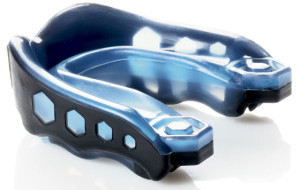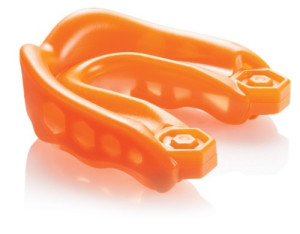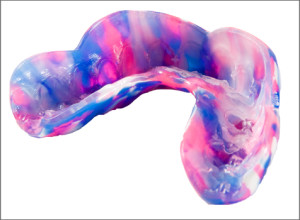How Dental Mouth Guards Treat Teeth Grinding
Teeth grinding or bruxism has for a long time been a silent yet crushing condition that equally plagues the young and the old at night. While most people consider it as normal, its serious effects such as jaw disorder, gum problems and damaged teeth can attest that indeed, the condition is way beyond normal. As such, it needs serious attention. That is where a dental mouth guard comes into the picture.
Different Types of Mouth Guards
There are ready made over the counter dental mouth guards which are extremely common, and prescription or made to order dental mouth guards. Over the counter mouth guards are made out of thermoplastic or plastic material. That explains why they can be effortlessly molded once properly heated in boiling water.
Because they are often mass produced for general use, they do not cost much. The concept behind them is simple. They work by comfortably holding your teeth in static position throughout the night as you sleep. This means that the device leaves your facial muscles relaxed and your teeth at a zero risk of gnashing.
The other type, the prescribed dental mouth guard, is a little bit complicated. It is quite pricy and demands some ample time to be made. The reason is simple. The dental mouth guard must be intricately molded to match specific needs of a specific patient. As a matter of fact, only a handful of experts are professionally trained and licensed to produce them.
A dental mouth specialist first takes time to craft a plaster cast of his patient’s teeth from which the dental mouth guard is carefully patterned. The whole process takes place in a dental lab. That means there is no need for additional boiling or molding once the expert is done with crafting the plaster cast. Prescription mouth guards are used by apneic patients with braces or hard to fit mouth.
How Do They Work?
Unlike what most people think, dental mouth guard for sleep apnea cannot cure or get rid of teeth grinding now matter how consistent they are worn. Teeth grinding is simply a mind thing. Your mind basically compels your facial muscles to move up and down as you sleep. A dental mouth guard for grinding teeth works in a way that when you bite on it, your teeth don’t touch each other. As such, grinding does not stop. It still happens as it would without the sleep apnea mouth guard. With its help however, grinding cannot proceed to full action.
What Causes Teeth Grinding?
The causes are well known:
-
Anxiety
-
Stress
-
Dental conditions
From these causes alone, it is easy to conclude that treating teeth grinding is easy. After all, psychotherapy and stress management can come to one’s rescue. That is however, not the case at all. The treatment process is more or less like undergoing therapy. That means that it takes time. You must therefore be extremely patient with yourself.
Seek treatment as soon as you notice sleep apnea symptoms. This will help you to better understand your condition and how long it will take heal. Avoid trying hyped and unresearched alternative remedies. They will only jeopardize the healing process. If at all you should try any alternative treatment, consult your doctor. Unprescribed measures can easily turn out into a nightmare and cause you more harm than good. The only safe alternative treatment method is observing a healthy diet and keeping off habits that can worsen your condition. That includes smoking, excess alcohol consumption and use of sedatives before going to bed. Then remember that cleaning dental mouth guard is extremely important. Wash it daily with mild soap and avoid sharing it with others.


